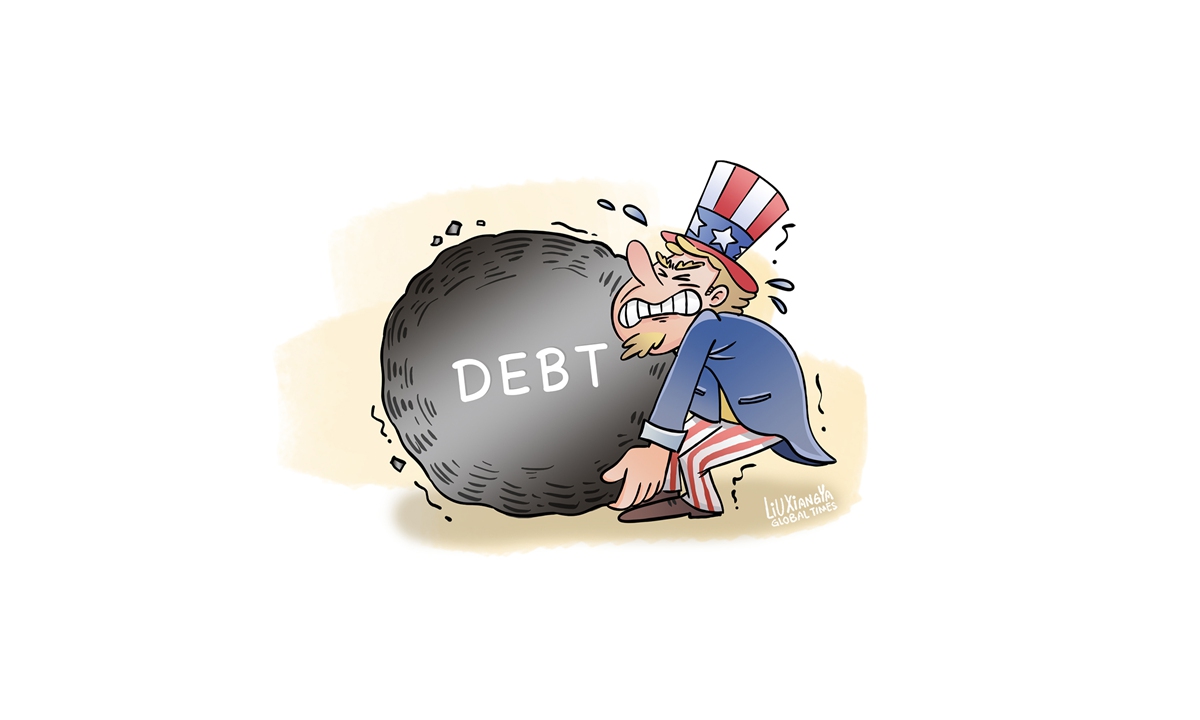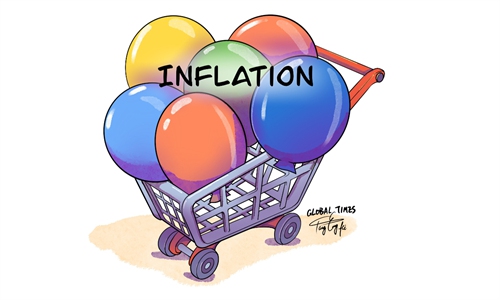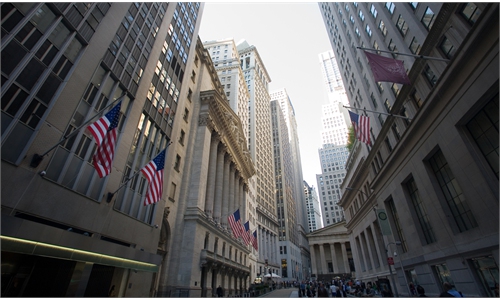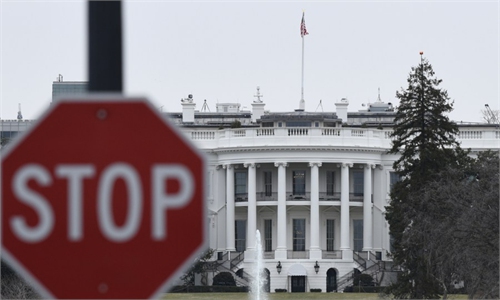
Illustration: Liu Xiangya/Global Times
With several days to go before the end of fiscal year 2023 on September 30, the massive expansion in US federal budget deficit is setting off alarm bells across the American economy. The deviation between US fiscal policy and Federal Reserve's monetary policies is like two gears pulling in opposite directions. The longer the deviation takes, the more financial risks will be accumulated throughout the US system, risking spillover effects on other economies.The US Congress has just several days to avert a shutdown before the government runs out of money. The deadline for lawmakers to reach an agreement is midnight on September 30, after which government funding for essential services is set to run dry. This is not the first time that the government is faced with plunging into such as an awkward situation. The most recent shutdowns were in 2018, when the government was shut more than 30 days.
The last three years of public policy have had a major impact on the federal budget. The large increases in government spending far outpaced the growth in revenues, reportedly resulting in deficits of $2.7 trillion, $1.4 trillion, and $1.6 trillion in fiscal years 2021, 2022, and 2023, respectively, with the last month of 2023 based on current estimates. As the US national debt passes $33 trillion and a government shutdown looms, Wall Street and global investors inevitably feel the chill.
Some analysts believe the US economy has been on a strong recovery track since the beginning of the year. Such an uptrend should be attributed to multiple factors, among them an expansionary US fiscal policy that includes high levels of government spending is an important one. Increased government spending can take the form of both purchases of goods and services, which directly increases economic activity, and is transferred to individuals, indirectly increasing economic activity as individuals spend those funds.
Meanwhile, inflation rates increased for a second straight month in August, reversing previous declines as consumers continued to grapple with the rising cost of everyday goods. Since March 2022, the Fed has lifted interest rates 11 times and held them steady only twice, including September's pause, to control inflation. The substantial tightening in monetary policy has started to weigh on activity, increasing households' and firms' interest payments, and putting pressure on the real economy. It's understandable that an expansionary fiscal policy has been adopted to increase government spending amid inflation woes and it would be conducive to offset the negative impact of tightening monetary policies on the economy.
A year ago a majority of economists expected a US recession. So where'd it go? Increasing government spending may be one of the factors that have kept a recession at bay, at least so far. The more aggressive the Fed's tightening monetary policy is, the more government spending may be requested to stimulate growth. With 2024 presidential election just about one year away, the Biden faces a challenge: how to convince voters that he has the ability to boost growth while curb inflation.
In such a situation, the Biden administration probably hopes to maintain elevated government spending to promote growth. The tightening of monetary policy and expansionary fiscal policy seem like the two ends of a seesaw, requiring a delicate balance to avoid a recession in the US economy.
However, what some Western economists tend not to notice are the side effects on the US economy. A big part of the story is the massive expansion in the federal budget deficit. Prospect of government shutdown poses a new threat to the US economy. For instance, a government shutdown would cost the US travel economy as much as $140 million a day, CNN reported, citing an analysis released by the US Travel Association. While the US economy is unlikely to implode any time soon, it faces significant and deep-rooted challenges. Moody's Investors Service said on Monday that US credit rating could come under pressure if the government shuts down.
The US remains the world's largest economy, the mistakes it makes often result in strong spillover effects that not only harm itself but also burden the region and even the entire world economy. Missteps over stubborn inflation and massive expansion in federal budget deficit make the country a real "time bomb" posing a danger to the world.
The author is a reporter with the Global Times. bizopinion@globaltimes.com.cn



